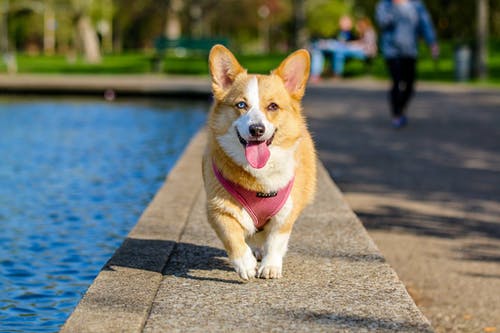Why Preventative Veterinary Services Are Essential for Your Pet’s Long-Term Health
Your furry friend is not just a pet but a beloved family member. Naturally, you desire to provide the best care for their long-term health and well-being. That’s where preventative veterinary services come to the rescue! These services are crucial in maintaining your pet’s health and avoiding potential health issues. This article will discuss the importance of routine checkups, vaccinations, weight management, and more in your pet’s preventive care journey.
Routine Pet Checkups
A cornerstone of preventive care is regular veterinary checkups for your pet. These routine appointments offer an opportunity for early detection and treatment of possible health issues, ensuring your pet remains happy and healthy. The vet evaluates overall pet health, dietary habits, and exercise routines in this process.
Routine Exams
One key aspect of checkups is dog wellness exams. These assessments are tailored specifically for your canine companion to ensure they receive the proper care at every stage of their life. During a dog wellness exam, your vet will examine the dog’s teeth, fur, ears, eyes, and overall body condition. Your vet will recommend additional services, such as blood tests or imaging, to identify any underlying health concerns that may need immediate attention.
Vaccinations and their Benefits
Proper vaccinations play an essential role in your pet’s health journey. Timely vaccinations will protect your pet from life-threatening diseases and prevent the spread of contagious pathogens to other animals and, in some cases, humans. Vaccinations also help you comply with state or local requirements, ensuring the community’s overall health and safety. Collaborating with your veterinarian in maintaining an up-to-date vaccination schedule is crucial for your pet’s well-being.
Weight and Diet Management
Maintaining a healthy weight and diet for your pet is another critical aspect of preventative care. Obesity and dietary imbalances can lead to various health problems like diabetes, heart disease, and joint issues. Your veterinarian will guide you on your pet’s appropriate diet and exercise regimen, considering breed, age, and size.
Protecting Pets from Illness
Preventative care is critical in shielding your pet from various diseases and illnesses. Early detection and appropriate treatment often mean the difference between a manageable condition and a severe, long-lasting problem. Ensure your pet is well-protected by staying vigilant to potential health concerns and seeking prompt care.
Vet Clinic
Your local vet clinic is essential for maintaining your pet’s health. They provide preventive care and treatment for various illnesses, injuries, and general health concerns. When you’re ready to take the preventive care journey with your furry companion, don’t hesitate to book an appointment with your trusted vet clinic.
Cost Benefits of Preventive Veterinary Care
Investing in preventive veterinary services can go a long way in reducing future medical expenses. By identifying and addressing potential health issues early on, you can avoid costly treatments later or the consequences of an undetected illness. Ultimately, the money spent on preventive care is an investment in your pet’s long-term health.
Veterinarian Considerations in Preventive Care
Several factors come into play when designing a proper preventive care plan for your pet. These include whether your pet is an indoor or outdoor animal if they come into contact with wildlife, and their age. Your veterinarian will tailor their recommendations and treatment plans to your pet’s unique needs, ensuring a comprehensive and personalized approach to preventive care.
Proper Vaccination Schedules
Adhering to a proper vaccination schedule is essential for your pet’s health and well-being. Your veterinarian will help you develop a vaccination plan considering your pet’s age, breed, lifestyle, and pre-existing medical conditions. Following the recommended vaccination schedule will provide your furry friend with the protection they need for a healthy life.
Educating Pet Owners on Preventive Care
In addition to professional veterinary services, pet owners play a crucial role in implementing preventive care measures for their pets. Understanding the significance of routine checkups, vaccinations, weight management, and early intervention is vital for your pet’s long-term health. Familiarize yourself with the best practices and share your knowledge with other pet owners, contributing to community awareness and health.
Pet Boarding
Sometimes, life situations may require entrusting your pet to a boarding facility. In such instances, ensuring that your pet’s preventive care stays on track is crucial. Reach out to the boarding facility to follow up here on their vaccination requirements, on-site veterinarian services, and other preventive care measures available during your pet’s stay. By doing so, you can rest assured that your furry friend will continue to receive the necessary care while you’re away.
Conclusion
In conclusion, preventative veterinary services are vital in ensuring your pet’s long-term health and well-being. From routine checkups and vaccinations to weight management and early detection of illnesses, these services contribute significantly to the overall health of your furry family member. As a responsible pet owner, try to understand and implement preventive care measures and work closely with your veterinarian to give your pet a long, happy, and healthy life.










